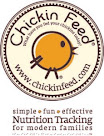
MeterCategories
|
Link Click Tip
When clicking on a link in a post, right click the link and select "open in new window". This keeps your current page open and the new link will open in a new window.
Search This BlogThe BasicsBlog Archive |

Savings Garden
a little of this and a little of that and a whole lot of savings.
| Organic Food Basics | 10/15/2008 |
|
Filed under:
Basics,
Grocery Store Mini Series
|
|
JMO - Mini Series installment #2
Organic food and is it really worth it?
Not all of us can afford to go 100% organic. The solution? Focus on just those foods that are laden with the highest amounts of pesticides, chemicals, additives and hormones and deploy your organic spending power on buying organic versions of these whenever possible. Can't find organic versions of these foods? We've listed safer alternatives that contain the same valuable vitamins and minerals.
1. Beef - Contrary to a widely reported "fact," meat typically contains less pesticide residue than plant-based foods, according to Debra Edwards, the director of EPA's Office of Pesticide Programs. That said, raising animals with conventional modern methods often means using hormones to speed up growth, antibiotics to resist disease and pesticides to grow the grain fed to the animals.
According to many however, meat contains higher levels of pesticides than any of the plant foods." Similar to milk and milk-based dairy products, many chemical pesticides end up in the animal, which end up in you.
Not all of us can afford to go 100% organic. The solution? Focus on just those foods that are laden with the highest amounts of pesticides, chemicals, additives and hormones and deploy your organic spending power on buying organic versions of these whenever possible. Can't find organic versions of these foods? We've listed safer alternatives that contain the same valuable vitamins and minerals.
1. Beef - Contrary to a widely reported "fact," meat typically contains less pesticide residue than plant-based foods, according to Debra Edwards, the director of EPA's Office of Pesticide Programs. That said, raising animals with conventional modern methods often means using hormones to speed up growth, antibiotics to resist disease and pesticides to grow the grain fed to the animals.
According to many however, meat contains higher levels of pesticides than any of the plant foods." Similar to milk and milk-based dairy products, many chemical pesticides end up in the animal, which end up in you.
Consumers looking to avoid meats raised with these substances can seek out certified organic meat. To meet USDA standards, this meat can come only from animals fed organic feed and given no hormones or antibiotics.
Publications as varied as the Wall Street Journal, in its 2007 When Buying Organic Makes Sense and When It Doesn’t, and Consumers Union, in its 2006 Tips on Buying Organics Without Breaking the Bank, recommend seeking out organic meats when possible.
2. Milk - The fat in dairy products is another haven for pesticides and chemicals. They also concentrate in the fatty tissues of animals, which gets passed on to you through their milk. Antibiotics and bovine growth hormones are another concern and found in commercial milk, cheese and butter. Organic dairies do not use antibiotics or growth hormones like rGBH or rbST.
3. Coffee - Many of the beans you buy are grown in countries that don't regulate use of chemicals and pesticides. Look for the Fair Trade Certified label on the coffee package or can; it will give you some assurance that chemicals and pesticides were not used on the plants. It will also mean that fair prices were paid for the end product in support of the farm and that farm workers are treated fairly.
4. Peaches - Forty-five different pesticides are regularly applied to these delicately skinned fruits in conventional orchards. Can't find organic? Safe alternatives: Watermelon, tangerines, oranges and grapefruit.
5. Apples - Scrubbing and peeling doesn't eliminate chemical residue completely so it's best to buy organic when it comes to apples. Peeling a fruit or vegetable also strips away many of their beneficial nutrients. Organic apples taste sweeter than conventionally grown, too. Can't find organic? Safe alternatives: Watermelon, bananas and tangerines.
6. Sweet Bell Peppers - Peppers have thin skins that don't offer much of a barrier to pesticides. They're one of the most heavily sprayed vegetables out there and victim to thirty-nine pesticides commonly use to keep them insect-free. Can't find organic? Safe alternatives: Green peas, broccoli and cabbage.
7. Celery - Celery has no protective skin, which makes it almost impossible to wash off the twenty-nine different chemicals that are used on conventional crops. Can't find organic? Safe alternatives: Broccoli, radishes and onions.
8. Strawberries - On average, strawberries receive a dose of up to 500 pounds of pesticides per acre. If you buy strawberries out of season, they're most likely imported from countries that use less-stringent regulations for pesticide use. Can't find organic? Safe alternatives: Blueberries, kiwi and pineapples.
9. Lettuces - Leafy greens are frequently contaminated with want are considered the most potent pesticides used on food. Can't find organic? Safe alternatives: Cabbage, cauliflower and Brussels sprouts.
10. Grapes - Imported grapes run a much greater risk of contamination than those grown domestically. Vineyards can be sprayed with thirty-five different pesticides during different growth periods of the grape and no amount of washing or peeling will eliminate contamination because of the grape's permeable thin skin. Can't find organic? Safe alternatives: Blueberries, kiwi and raspberries.
11. Potatoes - America's popular spud ranks highest for pesticide residue. It also gets the double whammy of fungicides added to the soil for growing. Can't find organic? Safe alternatives: Eggplant, cabbage and earthy mushrooms.
12. Tomatoes - The standard regimen of pesticides used on conventionally raised tomatoes are thirty. Their easily punctured skins are no match for chemicals that will eventually permeate the whole tomato. Can't find organic? Safe alternatives: Green peas, broccoli
Full article: click here.
If the cost of buying all organics isn't within your budget, fear not. Here's a list of fruit and vegetables you don't need to buy organic. These are fruits and vegetables that retain the least amount of pesticide residue so you can save your dollars and buy organic for those foods that are laden with the highest amounts of pesticides, chemicals, hormones, additives.
10 Foods You Don’t Have to Buy Organic
Asparagus
Avocados
Bananas
Broccoli
Cabbage
kiwi
mango
onions
papaya
pineapples
Avocados
Bananas
Broccoli
Cabbage
kiwi
mango
onions
papaya
pineapples
Full article - click here.
Subscribe to:
Post Comments (Atom)
Traffic Feed




0 comments:
Post a Comment